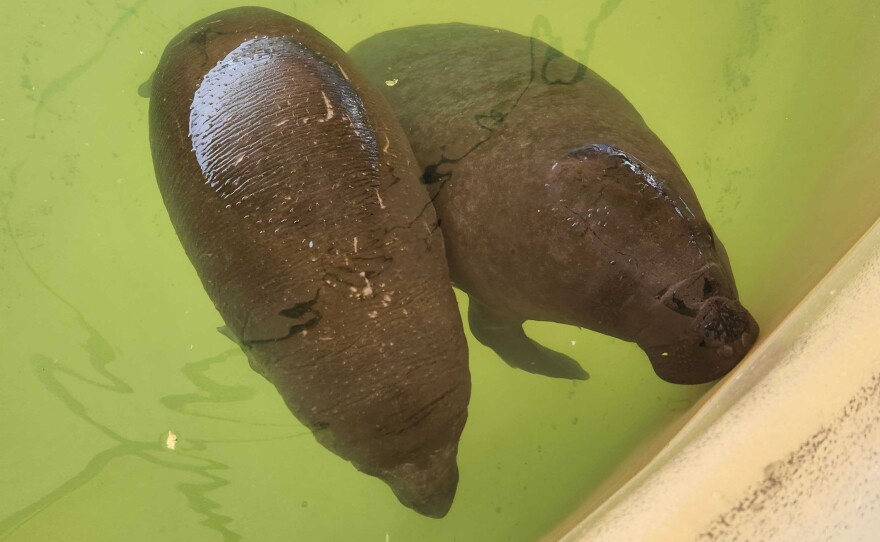ICE Enforcement Agreements on Campus
More public safety agencies in Central Florida are signing agreements with Immigration and Customs Enforcement. That list is growing and expanding to public colleges. That includes UCF, the largest university in Florida and one of the largest in the United States. In February, Governor Ron DeSantis directed Florida law enforcement to enter an agreement with ICE under 287(g) that authorizes state officers to be trained to perform immigration enforcement duties. The governor said this will lead to more efficient deportations, create safer communities, and position Florida to work with the Trump administration on combating illegal immigration.
When it comes to the implications of the agreement, between UCF and ICE, Orlando immigration attorney Nayef Mubarak has some concerns especially when it comes to the Student and Exchange Visitor Information System called SEVIS. That’s the web-based system ICE uses to track foreign students studying in the United States. Some students are having their SEVIS records suddenly revoked, which essentially means their student VISA allowing them to travel here legally is being canceled. Mubarak is working with college students in Orlando trying to keep up with rapidly changing immigration policies. He joins Engage to discuss the impact on the Central Florida community and explain what university police will be able to do after signing the 287(g) agreement to work with ICE.
A group of students at UCF created a petition demanding an end to ICE’s collaboration with the university police department. Marcus Polzer joins Engage to discuss his opposition to the 287(g) agreement.
University faculty are also navigating the implications of the 287(g) agreement. UCF Associate History Professor Robert Cassanello is a member of the United Faculty of Florida labor union that represents staff in the state’s public higher education system. He joins Engage to discuss what he’s experiencing on campus.
When we reached out to the UCF communications department to request a voice from university leadership about the 287(g) agreement, we received the following written response: “We’re not doing interviews on this topic. From our perspective, we are a public university that receives state and federal funding and are therefore obligated to comply with all state and federal laws.”
Orange County Arts Community Suspends DEI Grants
At the beginning of his second term, President Donald Trump signed an executive order terminating diversity equity and inclusion programs across the federal government. A goal of Governor Ron DeSantis’s in-state DOGE task force is to eliminate DEI programs in Florida. In the wake of these directives, some organizations in the Orlando arts community are losing local funding for regional initiatives. After reviewing legislation and orders from the state and federal government, Vicki Landon, Orange County’s Arts and Cultural Affairs Administrator sent an email suspending the DEI and Sustainability Committees and canceling the Cultural Tourism Supplement DEI and Sustainability grants they govern. Landon’s note says this is being done out of an abundance of caution to ensure compliance and to not jeopardize other arts funding. The canceled grants total $200,000. Opera Orlando is one of the organizations impacted by the changes, and Gabriel Pricer is the General Director. He joins Engage to discuss the cuts to cultural organizations that provide programming and outreach to widen their audiences.
Manatee Rescue and Rehab
A U.S. District Court ruled on Friday that the state of Florida is in violation of the federal Endangered Species Act for its management of wastewater released into the Indian River Lagoon. The environmental advocacy group, Bear Warriors, argued the discharge killed off seagrass, which led to illness and death among manatees in the region. The suit claimed the state failed to properly regulate the wastewater discharge and contributed to the 358 manatee deaths in Brevard county in 2021. Manatees face many challenges as the population of Florida continues to swell and coastal communities see increased development. In addition to the dangers pollutants pose to their health, manatees are frequently victims of strikes from boats and are frequently entangled in fishing gear. When a sick or injured manatee is identified in a Florida waterway, the rescuers from SeaWorld Orlando spring into action.
The Manatee Rescue Team has been operating in the shadows of the theme park since 1976. Their commitment is to the safety and preservation of Florida’s wild manatee. They are not part of the park’s animal presentations. Manatees are rehabilitated with the goal of releasing them back into their natural habitats. Last month, the program recorded its 1,000th rescue. Engage stops by to learn more about the team’s efforts from Kenzi Cudney, a senior zoological specialist on SeaWorld’s Rescue Team.






